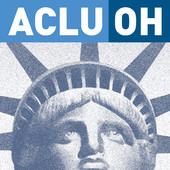Ohio bill: Religious protection or LGBT discrimination?

By Maggie Thurber | For Ohio Watchdog
Is Ohio’s proposed House Bill 376 just a state version of the federal Religious Freedom Restoration Act of 1993, or is it an excuse to trample on the civil rights of others?
RELIGIOUS FREEDOM: The American Civil Liberties Union is fighting a religious freedom bill proposed in Ohio.
The sponsors of the bill, Reps. Tim Derickson, R-Oxford and Bill Patmon, D-Cleveland, say it will protect things like Nativity scenes at Christmas and zoning for churches.
The American Civil Liberties Union says the bill will undermine laws protecting gay and transgender Ohioans against discrimination and grant others permission to ignore state and local laws.
RFRA, signed by former President Bill Clinton, states that no statute should “substantially burden a person’s exercise of religion,” unless the burden comes as a result of compelling government interest. It was passed unanimously by the House and had only three dissenting votes in the Senate. The Ohio verson of the law adds that if the burden is a result of a “compelling government interest,” it must be the least restrictive means of furthering that compelling interest
In 1997, the courts ruled that RFRA was unconstitutional as applied to the states. Since then, 27 states have passed more protective laws and 18 have approved bipartisan legislation similar to the proposed Ohio bill.
At a news conference announcing the proposed bill, Derickson said he was not concerned that Ohio courts weren’t making good decisions in religious freedom cases, but he noted high-profile instances around the country where Nativity scenes, crosses on necklaces and zoning for churches had been challenged and declared illegal.
“We really don’t want to wait until there is an issue before mandating a bill,” he said.
Patmon provided an example of how the bill might impact court cases, saying that if a picture of Jesus in a public place is questioned, there would be a “better opportunity to keeping Jesus up rather than taking him down.”
But the ACLU had examples as well, citing instances where individuals and groups used similar state laws as justification for bad – even criminal – behavior.
They said pharmacists have used it to refuse to dispense prescription medication. Police officers have used it to refuse orders, and businesses have used it to refuse service to lesbian, gay, bisexual and transgender couples.
“Individual religious freedom is critically important,” ACLU of Ohio Executive Director Christine Link said in a news release announcing their opposition to the bill. “That is why the ACLU has fought so hard for so many years to defend it. But religious freedom is not a free pass to ignore the law or strip away the safety and civil rights of others.”
Nick Worner, ACLU of Ohio communications coordinator, said there is a lot of confusion about the bill.
“When this was introduced, people were talking about the establishment clause — religious pictures in schools, for example,” he said. “We’re not talking about allowing a religious portrait in schools. That’s not our perspective on the case.”
He said the bill is so broad that it doesn’t just include behavior that burdens religious expression, but mildly inconveniences it as well. The ACLU also has a problem with the fact that the bill would provide a religious defense in private litigation, regardless of whether a governmental entity is a party.
“There is a fundamental difference between your religious freedom versus your ability to ignore existing laws or infringe upon the rights of others,” he said. “Some people seem to think their religious freedom can inhibit the rights of others.”
Worner said a situation in which a business denies services to an lesbian, gay, bisexual or transgender couple is one of the easiest ways to understand the potential impact of the law in Ohio. The ACLU says it would be used as a defense for the denial of service.
“We believe discrimination against the LGBT community should be treated the same way as racial discrimination,” he said. “Because Ohio law doesn’t protect them in the same way, though many local laws in the state do, this is likely to be one of the ways the law is used.”
He also cited a case in which a Virginia pastor abetted the kidnapping of a child in a parental custody case. The pastor cited his religious objection to homosexuality as his reason for helping one mother flee with her daughter to another country, after she became a born-again Christian and decided to no longer live as a lesbian.
“Most rational people would agree that that goes beyond the pale,” Worner said, noting that the pastor was convicted.
The core issue, Worner said, boils down to risks versus the benefits of the legislation.
“It’s not going to stop the establishment issues,” he said, “but it will create a lot of ambiguity about discrimination while providing a statutory defense in criminal cases. This has more risks than rewards, and that’s why we have a problem with it.”
ACLU of Ohio is urging legislators to withdraw the bill and plans to provide opponent testimony when hearings are scheduled.
The bill has 43 co-sponsors and is pending in the House Judiciary Committee.
The post Ohio bill: Religious protection or LGBT discrimination? appeared first on Watchdog.org.







